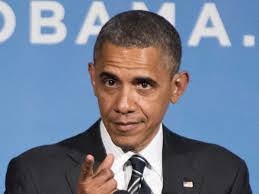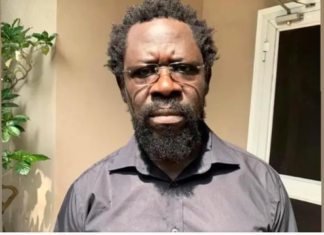Special Correspondent, SAM NWOKORO, sets agenda for President Goodluck Jonathan on his meeting with international figures and the diaspora Nigerians in America, next month
President Goodluck Jonathan is billed to attend the African Leaders’ Summit convened by President Barack Obama of United States (U.S.), between August 4 and 6 and Jonathan will be back to U.S. in September to attend the United Nations General Assembly of Heads of State, probably as a prelude to the United Nations anniversary which holds early October every year.
President Goodluck Jonathan
He will also attend the conference on Climate Change convened by UN Secretary General, Ban Ki-Moon. While in the U.S., the president is billed to hold a Town Hall meeting in Atlanta with Nigerians in U.S.
Femi Omosule, National Coordinator of the Goodluck Jonathan Leadership Centre, which promotes the programmes and activities of President Jonathan as a first class world leader, says: “The Town Hall meeting in U.S. for a Nigerian leader, which will be the first of its kind since 1960, is going to be different from meeting with Nigerian communities in the Diaspora by past presidents.”
Since 2003, Nigerian leaders have come to reckon with her subjects in other countries and try to connect them to domestic agenda; after all, they (especially those living in the western world) remit handsome amount, officially and unofficially, contributing to the country’s Gross Domestic Product (GDP), and indirectly mitigating capital flight that takes place in the economy legally and illegally. It is estimated that nearly two million Nigerians live in the U.S. alone. And most are actively engaged in productive sectors of U.S. economy.
In the past few years, electoral matters had attracted the attention of Nigerians in foreign lands, especially in the U.S. where virtually every state has a Nigerian community-based organisation like town unions or state assemblies as rallying point of articulating their concerns about the goings-on in the country.
Precise timing
The president’s timing of embarking on this meet-my-people chat bodes well with his style of handling Nigerian affairs, his aides claim. According to them, it is like the president going to meet his children in the U.S. to intimate them on what is going on in the country and how he has managed to steer the ship of state so far. The meeting, it is also estimated, would enable him have a pulse of their feeling about events back home.
He will also be meeting with fellow world leaders’ at the UN and the Obama-convoked summit with African leaders with confidence, Aso Rock sources insist.
Dr. Gregory Nwaru, who leads a grassroots NGO called ‘Think Nigeria Initiative’, said: “The president’s time for meeting with the Diasporas is right, even the Obama summit with African leaders. The president now has a complete wrap up of domestic affairs and would not be embarrassed by any question thrown to him or grope for what to answer.
“The confab was meant to provide Nigerians, through their delegates, opportunity to table issues they feel most serious about for discussions. And he has done that. Again, he has tactically refrained from formally announcing his intention to contest for second term. Perhaps, he wanted to see how the confab plays out. So it is likely that he will formally declare, when he returns from these three summits. He now has a full kit of what to tell Nigerians abroad and would be better poised to take their questions with certainty.”
Commentators are divided on the likely issues the president will be addressing with the Diasporas, and the kind of things the Diasporas expect to hear from their leader.
The confab
It is estimated that Nigerians abroad would want to know what the president intends to do with the outcome of the national conference. They are already monitoring developments at home and abreast with such issues as devolution of power, resource control, the Land Use Act repeal, derivation and allocation formula to mineral producing areas, including ethnic representation and their agenda regarding Nigeria’s present political structure. These are issues over which the confab did not make precise and popularly satisfactory resolutions. So, the president should not be surprised if questions are thrown at him regarding these issues.
Declaration to re-contest
The president’s second term declaration has remained a subject of intense speculation for a long time. Certainly, most Diasporas feel the same way that the president may have been fazed by domestic irritations, putting him off code regarding declaration. The president, according to Musa Ibrahim, Youth leader of Lagos-based NGO, should make it elaborately clear before his audience that he would contest 2015 general election. Let his foreign audience understand the complex social make-up of Nigeria, and that his running in 2015 is in the best interest of the Nigerian nation. This is not boasting, but simply the facts on the ground now at home.
Meeting with Obama
One of the engagements the president will have while in the U.S. between August 4 and 6 is attending the Summit of African Heads of State with President Obama. No doubt, the issue of terrorism that has come to Africa in the past five years is novel. Nigerians prefer a strong bi-lateral relation with Washington than over-worrying about African security and political issues. Nigerians would not want African interests take precedent over Nigeria’s interest with President Obama.
Boko Haram menace
The activities of Boko Haram have transcended Nigerian borders. This means that under UN conventions, it is not strictly a Nigerian problem singularly. Through the president’s interaction with world leaders and the Diasporas, Nigerians expect their president to pass this message across: Boko Haram terror group is a local extension of the Al-Qaeda network operating in the Magreb region of Africa, with the aim of creating separate Islamic states out of those multi-religious countries in Africa like Nigeria. There is unexpressed belief that the whole world ought to be made to understand what is going on in Nigeria’s absurd federalism and the forces hindering the creation of a just and equitable federation in Africa’s most populous country. This is the moment of truth, and Nigerians expect their president to use the opportunity of the Obama-convened meeting with African Heads of Government to tell the world the undiluted truth about Nigeria’s social condition.
E-voting
The clamour for electronic voting to enable Diaspora Nigerians vote during elections has been on since 2007. It is Independent National Electoral Commission (INEC)’s perennial logistic logjam that hinders it. At the meeting, Nigerians expect the president to re-assure Nigerians in U.S. that they have legitimate stake in deciding who governs the country at any particular time; after all, they make remittances into the domestic economy, officially and unofficially.
The president has opportunity to make success of his meeting with about two million Nigerian voters in U.S., if he says the right thing. What communication experts describe as positive message should be his watchword. Nigerians don’t expect their president to project defeat: that his government has been hobbled by the nuisance of Boko Haram. But that he should keep focus on what he has done, is doing and plans to do to tame the insurgency. Projecting the impression of weariness, communication scholars believe, is a bad PR (public relations) for a government whose economy has been positively rebased and has been able to notch up series of high networth foreign investment portfolios, more than any other government in the country, even before the Boko Haram nuisance.
Meeting with Ki-Moon
Mr. Ban Ki-moon, United Nations Secretary-General.
Perhaps, as sideline to the UN General Assembly meeting, African Heads of state will hold a meeting with President Obama on a wide range of issues affecting the region. After that, a summit on climate change under the auspices of UN Secretary General, Ban Ki-Moon will take place. At the UN General assembly, heads of sovereign governments are given opportunity to express their concerns over UN’s resolutions and how its policies affect the world. Thus, President Jonathan will be going to the U.S. with a full package of agenda, and will try to canvass for Nigeria’s interest as the UN’s activities affect her.
No Nigerian head of state has ever missed the UN gathering. Jonathan’s attendance to the UN General assembly last year was epochal, in the sense that he met Obama as a special guest of the New York corporate and political establishment.
In fact, Nigeria went with a retinue of her business community, and Jonathan was honoured at the New York Stock Exchange (NYSE) with the ringing of the symbolic bell at the floor of the exchange, being in history the second African head of government after the late Nelson Mandela of South Africa. Afterwards, Nigeria’s bonds were floated in the international money market at the world’s financial capital. U.S. blue chip companies appropriated much of the foreign bonds. This was followed immediately by stepped-up investments into the economy by many U.S. companies into Nigeria’s power and agriculture sectors of the economy.
This year’s president’s outing in U.S. will see him participate in UN discussions on climate change, aside the discussions which Obama will have with African leaders.
Reaping from UN outing
Longers Anyanwu, a technocrat and Commissioner for Agriculture in Imo State under former Governor Ikedi Ohakim, is one of the apostles of Goodluck Jonathan’s transformation agenda. He says in his internet comments that “much benefits have accrued from President Jonathan’s past trips abroad. Whenever President Jonathan goes abroad, his mind is always on Nigeria’s economic interest. Whether in private or official discussions, what he does is economic diplomacy, and through this, many investors who only read about Nigeria, but have never been here before, have come in. No president in Nigeria has ever compelled foreign investors into Nigeria as much as the Jonathan’s administration.”
The president is expected to consolidate on past gains in this trip to the UN and other missions. The issue of climate change and environment has always been a major concern of world leaders since the 1992 Rio Summit. The politics associated with the contributions of both industrialised and developing nations in mitigating climate change hazards continues and, of course, as years go by, nations’ environmental problems and issues continue to pop up. Thus, at every UN-convoked climate change summit, new dimensions and contentions continue to rear their head, making implementation of its many conventions inept and not felt.
Also, Obama’s meeting with African heads of states will throw up a lot of issues bordering on containing terrorism, deepening democracy, and possibly the feasibility of a more enduring U.S.-Africa security partnership arrangement.












